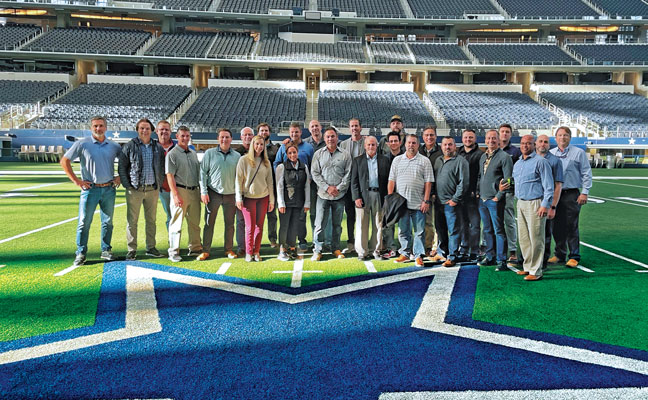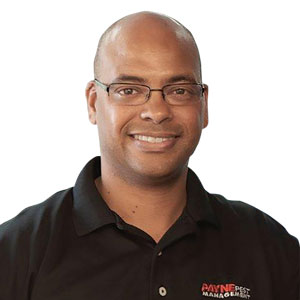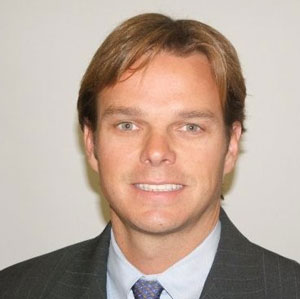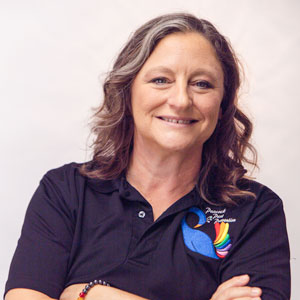
In January, The U-Group members toured the Dallas Cowboys’ AT&T Stadium during their meeting in Arlington, Texas. PHOTO: VM PRODUCTS
If there’s anything we’ve learned from watching 42 seasons of Survivor, it’s that making alliances can benefit not only an individual, but the group of individuals who are involved. While the pest control industry isn’t quite as cutthroat as an “unscripted” reality show — in most cases, anyway — we interviewed leaders of several pest control groups about why their respective organizations were created, how they benefit members, and how they have evolved to stay relevant in 2022.
We realize this roundup merely scratches the surface of industry alliances. An “alliance” can be as simple as two small pest control firms having each other’s backs when someone goes on vacation or has a family emergency, where they’ll service accounts without poaching, until the original tech returns. It also can be as big as Associated Pest Services, whose member firms are all family-owned and -operated, yet openly share ideas with one another to promote integrated pest management techniques and methods to mutually improve their businesses. (The group is always looking for new members, by the way, and is online at AssociatedPest.com.)
The National Pest Management Association (NPMA) is an alliance, with several committees and groups within its jurisdiction. In fact, the June issue features a milestone celebration of its Professional Pest Management Alliance. Other national, state and local associations are both resources of support and education for individual pest management professionals (PMPs).
Even the Pest Management Professional (PMP) Growth Summit is an alliance, with attendees staying in touch with fellow PMPs and suppliers after the annual event is over.
Let’s keep the conversation going. If you think we overlooked an alliance that deserves more attention, drop us a line at pmpeditor@northcoastmedia.net. In the meantime, we hope the following inspires you to reach out to colleagues and help better your business.
BLACK OWNERSHIP MATTERS (BOM)
By Jason Payne, President
BlackOwnershipMatters.org

Jason Payne
Our mission to promote Black ownership of pest control companies by providing financial guidance, business resources, employee development, mentorship and community support remains the same today. Since we first began, our dedication to creating equity and community through mentorship is further cemented — most notably in the number of members and partners.
Digital tools like Facebook and Zoom have been invaluable for connecting our members nationwide, especially since our group was formed near the beginning of the pandemic. We hold monthly Zoom meetings with our board, as well as committee meetings for task updates, and meetings with mentors and mentees as required. Social media also allows for immediate conversation and discussion to focus on what is going on in the industry within our membership. Inversely, in-person meetings grant us an opportunity to bring our members together and establish a living environment. We plan to continue to use digital tools to stay connected, while folding in face-to-face meetings when possible.
We’re assisting organizations and individuals at various stages. Some members are starting their business or careers in pest control from scratch, while others are million-dollar organizations looking for refinement or best practices to improve operations. We’ve had quite a few members achieve their 8A certifications as a result of leadership and outside professional assistance with training. We have traveled to owners’ locations to see their business operations firsthand prior to offering assistance. We have addressed structure, strategy, sales, route productivity, wages, contract language and leadership with our mentees. As we continue this work, creating trust with other Black-owned businesses will remain a top priority as we continue to pool our resources and build a strong network and community.
Our next steps will be to recruit more mentors who are willing to share their expertise with our growing membership. We also plan to host more online training programs, and create tools our members can access that cover areas such as management/leadership, marketing, cost control and human resources.
EXECUTIVE PEER GROUPS
By Dan Gordon, CPA, Group Creator
PCOBookkeepers.com

Dan Gordon, CPA
Our executive peer groups in pest management serve as a forum for owners and/or managers actively involved with top decision-making in their organizations who are willing to share information about their company’s financial, marketing, operational and strategic plans to grow their firms and tackle business issues confronting members. Each group usually is comprised of eight to 12 members in non-competing markets, and harness the collective knowledge of the membership to help overcome the challenges of operating, growing, and building value and profitability for their companies.
We have been using an online community/project management program for years, as well as in-person events. During the pandemic, we held a few Zoom meetings instead, but now that we’re getting back to live events, there’s definitely a great feeling in the air.
Members typically sign a non-disclosure agreement preventing them from sharing financial and operational information and/or trade secrets with anyone not in the group. Many groups include an experienced facilitator using an organized discussion format, ensuring all members get heard.
Participants have grown their businesses in one way or another by belonging to one of our peer groups. One specific challenge I can recall was how a member had a partner she could not get along with, but didn’t have the courage to make the split. Her peer group helped her see how much better off both she and the business would be if she could summon the courage and make the move. With their support, she made the split, and these days couldn’t be happier that she did.
Knowing your fellow members have walked in your shoes and faced some of the same challenges you face is huge. You can learn from their successes, as well as their mistakes. The level of sharing and support is amazing.
Looking ahead, we may somehow tie our peer groups’ discussions and activities in with the community Donnie Shelton and I have built from our monthly “PMP Industry Insiders” podcast.
PEST CEMETERY
By Jerry Schappert, ACE, Founder
Facebook.com Private Group

Jerry Schappert
It was 2010 when I originally “asked Mark Zuckerberg” for the privilege of creating this Facebook group, which sprang from a blog I had been writing for about four years. My son suggested it would make a great community for fellow PMPs. It began as an open group, but someone admitted that if it went private, they would feel more comfortable sharing more. Going private took membership from 250 to 500 within six months and 1,000 within a year. These days, we have more than 12,500 members, with about 10,000 of them actively posting and commenting.
I’m particularly proud of starting the Pest Cemetery National group, an offshoot of the Facebook group for volume customers. So far, we’ve sold a national flooring retailer with about 140 stores nationwide, and we believe more are in the pipeline. The National group has a network of at least 500 licensed and insured PMPs who are on standby for bird control, wildlife and now general pest control. They’re getting recurring revenue, and it’s all because of a Facebook group created to vent about life in the pest control industry.
We also have two offshoot groups on Facebook: Pest Cemetery Business Owners, which is more serious in tone and left to the administrators to run, and the Pest Cemetery Cares Group. The latter group is a way to let people help one another and keep donation solicitations off the main group’s boards. While we don’t allow GoFundMe requests simply because it’s too difficult to confirm what is and is not legitimate, I think the Cares group will strike a chord and be capable of doing some great things for people in need.
Then there’s Pest Cemetery Pro, a subscription site where I have my articles and about 800 videos discussing real-world training issues like, “How to crawl over a duct without creating damage” or “How to properly roll up a hose.” I’m in the process of going through the videos with my son, who is a videographer, to revamp some of the “cheesy” earlier ones.
We have people crediting us for their success, growing from one-person operations to multi-million-dollar companies. I’ve learned so much as well. I am truly blessed and humbled every time I open the Facebook app.
PEST CONTROL HUMOR DEPOT
By Brad Harvey, Group Creator
Facebook.com Private Group

Brad Harvey
Pest Control Humor Depot was created in early 2020, just as COVID-19 was beginning to take hold worldwide. I believe the “unified anonymity” the Depot offers is attractive to a lot of our members. We currently have no plans to convene in person, but who knows what the future holds?
While the Depot is, first and foremost, a humor group, it is also a great place for fellow pest control technicians, salespeople, managers, office personnel and owners to get together and share a common laugh or anecdote, obtain an answer to an industry-related question, or simply unpack daily baggage. We don’t take ourselves too seriously — until it’s time to be serious, as it relates to safety, regulations, techniques, etc.
We’re always ready to set the rubber chickens down when necessary to help a colleague in need of guidance.
The Mod Squad — which consists of page moderators Josh, Dan, Darrell, Kevin, Paula, Mikael and Beckett — and I spend a good deal of time and effort to keep the Depot “for us, by us.” We screen everyone who wants to join to ensure it remains strictly for pest control folks. What we do as an industry is a niche that few outside of it can fully grasp, and our sense of humor often is not for the squeamish.
These days, PMPs are adopting new products, techniques and technologies at an ever-increasing pace. As a result, many other things become outmoded. One of those things is the workplace break room. With handheld devices and paperless reporting/invoicing, many pest control “offices” nowadays are simply a place to pick up supplies, and hold an occasional meeting. Even continuing education unit (CEU) credits can be obtained online now. The group dynamic is becoming an endangered species in our industry. Pest Control Humor Depot has served to fill that void in our working lives by keeping us in contact with one another in a personal way. If one member who’s having “one of those days” feels a bond or gets a chuckle out of something seen on the Depot, I feel like it’s worth the effort.
PJB BUSINESS DEVELOPMENT WORKSHOPS
By Paul Bello, ACE, BCE, MBA, Founder
PJBPestConsultant.com

Paul J. Bello, ACE, BCE
The first PJB Business Development Workshop took place at the Tropicana in Las Vegas in March 2018. The theme at that time was to teach people “How to make money on purpose.” Ever since, the Workshops have been held each March and October. While the mission has remained similar all these years, the theme has evolved to “Improving the financial performance of your business.”
Over the years, our group has grown into an “industry family,” an alliance representing PMPs from about 30 states across the country. Most of our communications are done conducted via a Facebook Group page or email. We are in the beginning stages of adding an attendee web page to the PJB Consulting site for past workshop attendees, as well as attendees who wish to participate virtually.
Our venue locations offer family-oriented, vacation-type destinations; beach locales are the most popular. Most folks arrive on Friday morning to participate in a deep-sea fishing charter meetup, with a fresh fish dinner prepared from the catch that evening. Some arrive Wednesday or Thursday to enjoy a four- or five-day weekend with their families. The workshop runs from 8 a.m. to 12:30 p.m. on Saturday and Sunday. We also proctor the Entomological Society of America’s exam for those wishing to become associate certified entomologists (ACEs) or board-certified entomologists (BCEs) during the weekend’s events.
Our goal is to keep things relaxed, informal and at least 51 percent fun. One of the unique things about these workshops is that they’re held for the attendees based upon the topics they request via email, Facebook or phone. It is far more beneficial to our attendees to present the topics they desire than to dictate the topics to them. This is likely one of the primary factors that maintains our excellent attendance record. We’re basically answering the questions on the topics they need to know, because they’re the ones who create the list of topics.
While the majority of attendees already are excellent PMPs, many have not been formally taught how to run a business and make it profitable for themselves. It’s very rewarding to see someone succeed as a result of implementing something they’ve learned from the workshop — and/or other attendees.
THE U-GROUP PEST MANAGEMENT ALLIANCE
By Court Parker, Secretary
TheUGroup.org

Court Parker
I recall how in 2008, the first U-Group meeting took place at my house. There were 15 company owners, and we wanted to discuss how to succeed in a growing mergers and acquisitions (M&A) climate, which at the time was similar to the current M&A climate. We were non-competing, successful PMPs who wanted to share and learn from one another.
Today, we host two events per year, and stay in touch via email. For example, just a few hours ago someone was looking for a copy of the Occupational Safety & Health Administration safety manual for pest control. A short time later, someone responded to the group email: “Here’s my copy you can share.” It goes like that throughout the year — there’s always some way we can help a fellow member. Not long ago, I had a flight canceled in Orlando and a member just picked me up and let me stay overnight at his home!
We have a couple more open areas in the country to bring in more members who meet our criteria and are voted in. The minimum standard is $3 million or more in annual revenue, so we’re facing similar challenges with our companies. We’ve got an offshoot email group going for our members’ marketing teams, and another for our members’ training directors. We’re looking at maybe getting them together for a meeting as well, to trade ideas and solutions in-person with one another.
I love being part of the U-Group. At each event, we bring in speakers who are experts on M&A, investment banking, health and safety, and wellness, etc. It’s like having a board of directors. We all know each other’s businesses. I had four years of these guys telling me to do something and when I finally did it, I realized I should have listened to them four years ago. We hold one another accountable, and our goal is to help everyone succeed.
URBAN PEST MANAGEMENT TECHNICAL COMMITTEE (UPMTC)
By Mark Sheperdigian, BCE, Co-Founder
UPMTC.org

Mark Sheperdigian
UPMTC specifically serves its members by facilitating professional development. We make each other better by sharing knowledge and experiences. This, in turn, serves the companies that support our members by improving the technical support they receive. Although they may exist, I know of no other industry group that exists for this specific purpose. The Copesan Technical Committee, from which our group sprang early last year, served Copesan and was subject to the board of directors for direction and oversight. Pi Chi Omega serves the entire urban pest management community, and its members join for the purpose of giving. The NPMA’s Technical Committee serves the NPMA and its membership.
UPMTC exists primarily for the benefit of its members, but it serves several other purposes. It provides a single source to help manufacturers, universities and regulatory bodies get the technical point of view of PMPs around the continent. We meet monthly via video conference for business and roundtable discussions of member-driven topics. Also, an email list allows members to confirm insect identification and ask questions about challenges they may be having. This is an incredible resource for both new and long-time members.
For example, a member recently was sent an image of an obscure insect that is bewildering to any technical resource person who sees it for the first time. A more experienced member — who was similarly bewildered years ago by this same insect — corrected the identification and pointed the person in the right direction. This all occurred within hours of the initial email, and saved the member hours of research.
Looking ahead, UPMTC is still “drying its wings” as a newly emerged butterfly, but we hope to be able to put together resources to help new technical directors and trainers serve their companies in a wide variety of areas, such as program development, training resources and presentation skills.
WOMEN IN PEST CONTROL (WIPC)
By Lisa Meyers-Botts, ACE, Co-Owner
WomeninPestControl.wixsite.com/website

Lisa Meyers-Botts
When I first started helping Bobbie Terry, who founded WIPC on Facebook in 2017, all we wanted was a place where women in our industry could talk to one another and not feel like we were being talked down to — or worse, feel unable to discuss without judgment issues that were important to us. Now, we have a deeper purpose, future goals and a vision to provide excellent training and opportunities for women in pest management, along with a formal mission, vision and values statement.
The advantage of our Facebook group is immediate contact. We still can build relationships with one another virtually, and then solidify them when we get to meet in-person. Meeting in-person is really important to form stronger bonds. When you put a face to a name and connect in-person with others, it helps solidify the relationship and encourages each party to be more present for the other.
We have helped members with ideas for increasing social media presence, selecting software solutions, finding liability insurance, and sourcing clothing that fits and still has pockets, among other things. Often, “Hey, what’s this bug?” is the best question to get answered, because honestly, no one knows every species.
I believe our greatest strength, however, is in the value of our vendors. When we first said something about getting together for coffee, a vendor offered to sponsor the meeting. That turned into our first conference, and we’ve been growing ever since. I’ve received advice from vendors from “we need a mission statement” to “here’s an idea of things you can offer to get other sponsors.” The alliances we have made with manufacturers and distributors, and also with Pest Management Professional (PMP) magazine, have helped us grow WIPC into a great organization that can really help people achieve their goals in this industry.
Looking ahead, we will host our conference in September, and we now offer a coaching/mentoring program. Bobbie and I have plans and packages available to help members who are looking to start businesses, have purchased businesses and need help getting them up to speed, and have inherited existing businesses and want to make them run more efficiently.
Leave A Comment